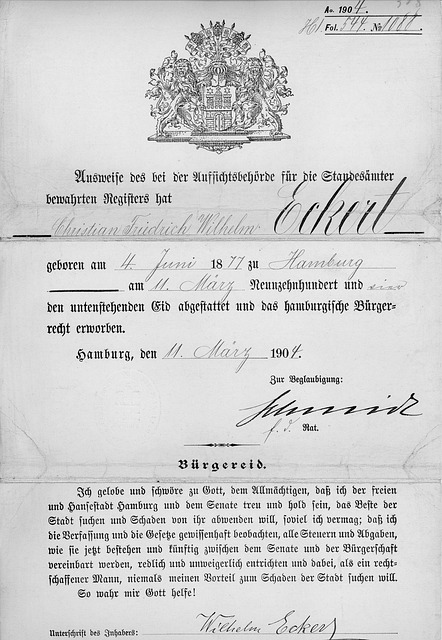In the UK, notarised documents require professional translation services to maintain their legal validity for international transactions. Specialized Notarised Translation Services UK employ translators skilled in both source languages and British legal terminology, preserving document accuracy and intent. Choosing reputable services with quality control measures like expert proofreading ensures translations meet official standards, minimizing legal risks. This meticulous process involves notaries verifying and certifying translations, making them acceptable across jurisdictions. With increasing demand from law firms, advanced technology is transforming these services while emphasizing the need for human oversight to ensure precision in UK legal communications.
“Accurate translations of notarised documents are pivotal for legal proceedings in the UK, ensuring the integrity and admissibility of foreign records. This comprehensive guide delves into the intricacies of notarised documents, their legal significance, and the critical role played by professional translation services. We explore common challenges, offer practical advice on choosing the right provider, and provide a step-by-step process for notarising translations. Discover insights into cross-border considerations, successful case studies, and future trends shaped by technology in the UK legal sector.”
- Understanding Notarised Documents and Their Legal Significance in the UK
- The Role of Accurate Translation Services in Legal Proceedings
- Challenges in Translating Notarised Documents: Common Pitfalls to Avoid
- Choosing the Right Translation Provider for Your Legal Needs in the UK
- Ensuring Quality and Authenticity: What to Look for in a Notarised Translation Service
- The Process of Notarising Translations: A Step-by-Step Guide
- International Law and Notarised Translations: Cross-Border Considerations
- Case Studies: Successful Notarised Translation Projects in the UK Legal Sector
- Future Trends: Technology's Impact on Notarised Translation Services
Understanding Notarised Documents and Their Legal Significance in the UK

In the UK, notarised documents hold significant legal weight and are essential for ensuring the authenticity and integrity of important paperwork. Notarisation serves as a formal certification process where a qualified notary public verifies the identity of the signer(s) and attestes to the truthfulness of the contents within the document. This ensures its legal validity when used in various official contexts, including international transactions and cross-border legal matters.
Accurate translations of notarised documents are crucial for UK citizens conducting business or seeking legal aid abroad. Notarised translation services UK offer specialized support by employing translators who possess a deep understanding of both the source language and the nuances of British legal terminology. These services guarantee that translated documents maintain their original intent, accuracy, and legal standing, ensuring smooth navigation through the complex landscape of international law.
The Role of Accurate Translation Services in Legal Proceedings

Challenges in Translating Notarised Documents: Common Pitfalls to Avoid

Accurately translating notarised documents for legal use in the UK presents unique challenges. These documents often contain complex language, technical terminology, and specific legal phrases that demand precise handling. Translators must possess not only strong linguistic skills but also a deep understanding of both the source and target legal systems to ensure the translated document retains its intended meaning and validity.
Common pitfalls include missing cultural nuances, incorrect legal terminology, or literal translations that don’t make sense in the context of the target language. Using unqualified translators or cutting corners on quality control can lead to errors that may compromise the integrity of a case. To avoid these issues, it’s crucial to engage professional notarised translation services UK that specialize in legal documents, ensuring expert handling at every stage of the translation process.
Choosing the Right Translation Provider for Your Legal Needs in the UK

When it comes to notarised documents for legal purposes in the UK, selecting a reputable and specialised translation provider is paramount. Notarised translation services UK should be your go-to choice when accuracy, reliability, and compliance with legal standards are non-negotiable. Look for companies that employ native-speaking translators with extensive legal expertise, ensuring they can handle complex terminologies and nuances specific to British law.
Reputable firms often provide additional guarantees, such as quality assurance checks and proofreading services, to ensure error-free translations. They should also be well-versed in the UK’s legal system and familiar with the processes required for authenticating documents, including notarisation and legalisation. This expertise ensures that your translated documents will meet all necessary criteria for acceptance in UK courts and government agencies.
Ensuring Quality and Authenticity: What to Look for in a Notarised Translation Service

When seeking notarised translations for legal documents in the UK, quality and authenticity should be paramount. This is because inaccurate or fraudulent translations can have severe consequences, leading to potential legal disputes and document rejection. To ensure peace of mind, it’s crucial to engage a reputable notarised translation service UK that adheres to strict industry standards.
Look for a few key indicators of quality. First, the service should employ qualified translators with expertise in legal terminology and procedures. Expertise ensures accurate translations tailored to the specific nuances of UK law. Second, the process must involve rigorous quality control measures, such as proofreading by another expert, to catch any potential errors. Lastly, the service should provide a certificate of authenticity, confirming the translation’s accuracy and legitimacy. This is essential for legal acceptance.
The Process of Notarising Translations: A Step-by-Step Guide

The process of notarising translations involves several crucial steps to ensure accuracy and legal validity for use in the UK. It begins with the original document, which must be clear, complete, and genuine. A professional translator then undertakes the task, translating the content word-for-word while preserving the intent and meaning. Once translated, the document is submitted to a notary public for verification. The notary checks the translation’s accuracy, compares it to the original, and certifies that it is a true and correct representation.
This certification involves adding a formal stamp or seal, along with the notary’s signature and the date. This process ensures the translation’s authenticity and legal standing in the UK. Many services offer this notarisation for various types of documents, including contracts, certificates, and legal notices, catering specifically to the needs of UK legal users.
International Law and Notarised Translations: Cross-Border Considerations

When dealing with international legal matters, accurate notarised translations are paramount. In the UK, notarised translation services play a critical role in facilitating cross-border transactions and ensuring compliance with International Law. These services ensure that documents, whether contracts, wills, or legal agreements, maintain their integrity and authenticity when presented in another jurisdiction.
Considerations such as language nuances, legal terminology variations, and cultural differences require meticulous attention. Reputable notarised translation services UK employ translators who are not only fluent in both source and target languages but also possess a deep understanding of the legal contexts involved. This ensures that translations are not just word-for-word but accurately convey the intended legal meaning, thereby upholding the integrity of the original document in international settings.
Case Studies: Successful Notarised Translation Projects in the UK Legal Sector

Successful Notarised Translation Projects in the UK Legal Sector highlight the increasing demand for accurate and reliable notarised translation services. Many law firms and legal organisations have benefited from professional translation providers who specialise in this area, ensuring complex legal documents are translated with precision and adherence to UK legal requirements.
These case studies demonstrate the value of experienced translators who understand the nuances of both the source language and British legal terminology. By employing qualified professionals, businesses can avoid costly mistakes and potential legal issues that may arise from inaccurate translations. The UK legal sector’s trust in notarised translation services reflects a growing awareness of the importance of precision and compliance in international legal communications.
Future Trends: Technology's Impact on Notarised Translation Services

The future of notarised translation services in the UK looks set to be shaped by technological advancements, offering both opportunities and challenges. As we move further into the digital age, machine translation tools are becoming increasingly sophisticated, capable of producing accurate and contextually relevant translations. This technology could streamline the process for UK legal professionals, making it faster and more cost-effective to obtain notarised translations for international documents.
However, while AI-powered translations may be tempting due to their efficiency, human oversight remains critical in ensuring the accuracy and legal validity of these documents. The role of professional translators will evolve, focusing on quality control, reviewing machine-generated translations, and providing expert verification. This hybrid approach leverages technology’s speed and accessibility while maintaining the precision and reliability required for UK legal use.
Accurate notarised translations are pivotal for legal proceedings in the UK, ensuring documents maintain their integrity and authenticity across borders. Choosing the right provider is essential; they should offer high-quality, verified translations, adhering to strict standards and legal requirements. By leveraging technology while navigating complex international laws, modern notarised translation services can efficiently facilitate cross-border legal work, as evidenced by successful case studies within the UK legal sector.
